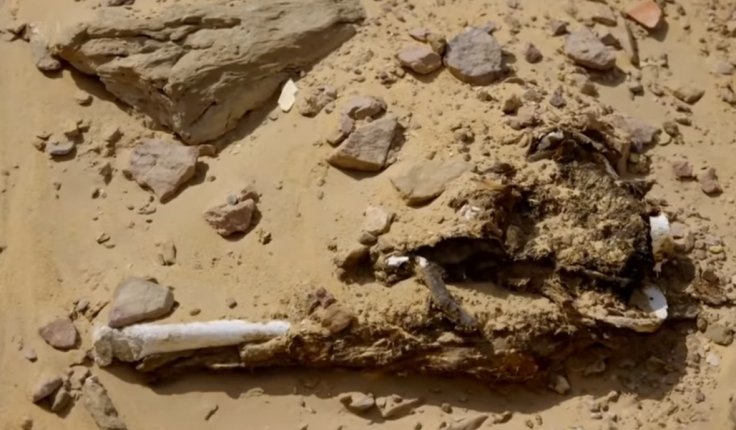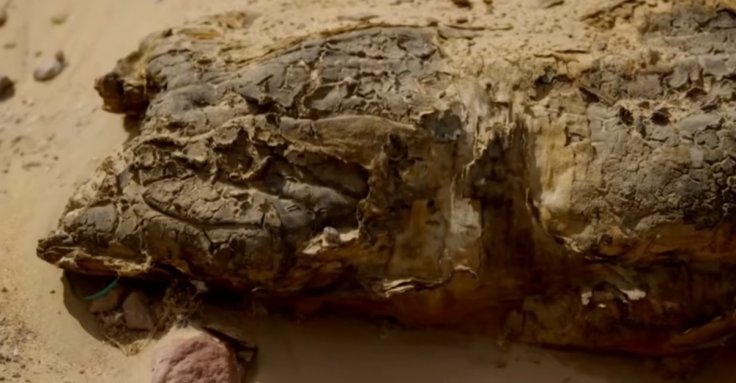There are several mysteries lying beneath the rich lands of Egypt. Recently archaeologists were surprised when they unexpectedly discovered an ancient mummy after a gust of wind blew a layer of sand from the desert during an excavation program in that area, exposing the mysterious tomb.
A German archaeologist Martin Bommas has been digging in the southern side of Egypt almost for 30 years to find our long lost tombs. But he found a 2000-year-old mummy in that area during the filming of Channel 5's "Opening Egypt's Great Tomb," after wind removed a sand layer from the mummy. Later, the archaeologist explained why the mummy was particularly peculiar.
Discovery of the hidden mummy

Bommas stunned to see the upper-part of a mummy after the sand layer was removed and the presenter from Channel 5, Tony Robinson addressed it as an "extraordinary" and "remarkable" finding of a headless mummy.
During the filming, the archaeologists told the viewers that "What we're looking at here is just the torso, the legs are missing. It's lying on its tummy and you can see the arms here, this seems to be his elbow, leading up to the shoulder."
He also added that the hidden ancient mummy must have been burnt but the quality of the bindings, as well as the linen, are quite good. While explaining the mummy, Bommas said it is possible that the mummy may belong to a very rich individual.
Description of the mummy
When Robinson said the mummy felt like it's hollow inside, Bommas mentioned that it is because the people who mummified the man took out the internal organs which were preserved separately, as per the Egyptian custom. In addition, he said, "I believe this is a Roman mummy, the Romans had a very strong presence here in Aswan. So this mummy is only about 2,000 years old."

Roman Egypt
Before ruling over Egypt, the relation between Rome and the land of pyramids predated both Julius Caesar and Octavian. But the land of Pharaohs became the land of Romans after the death of Cleopatra VII in 30 BCE, which was the end of the Ptolemaic dynasty which ruled Egypt since the death of Alexander the Great in 323 BCE. However, it should be noted that the province of Egypt remained part of the Roman Empire until the seventh century when it came under Arab control.









